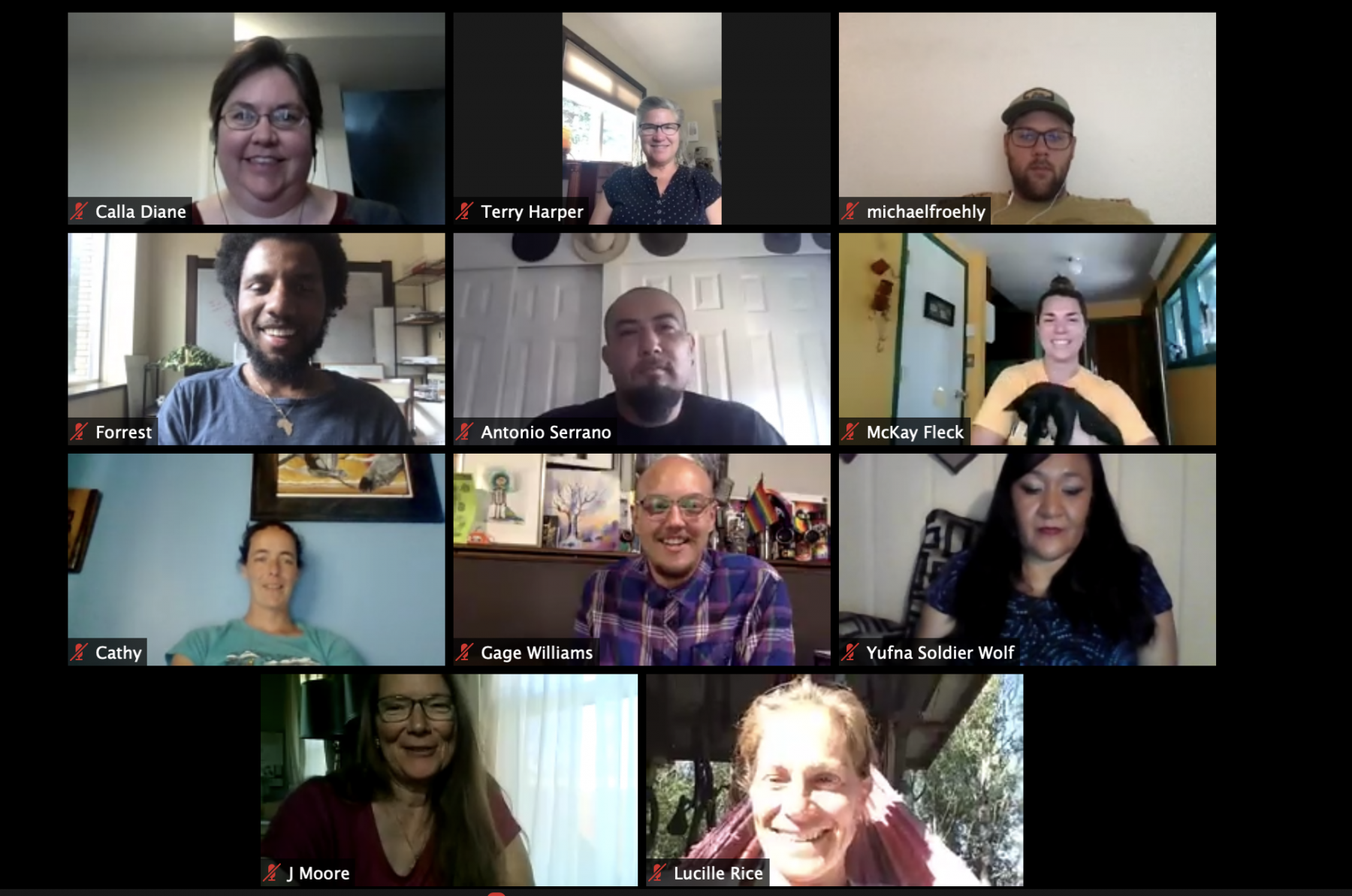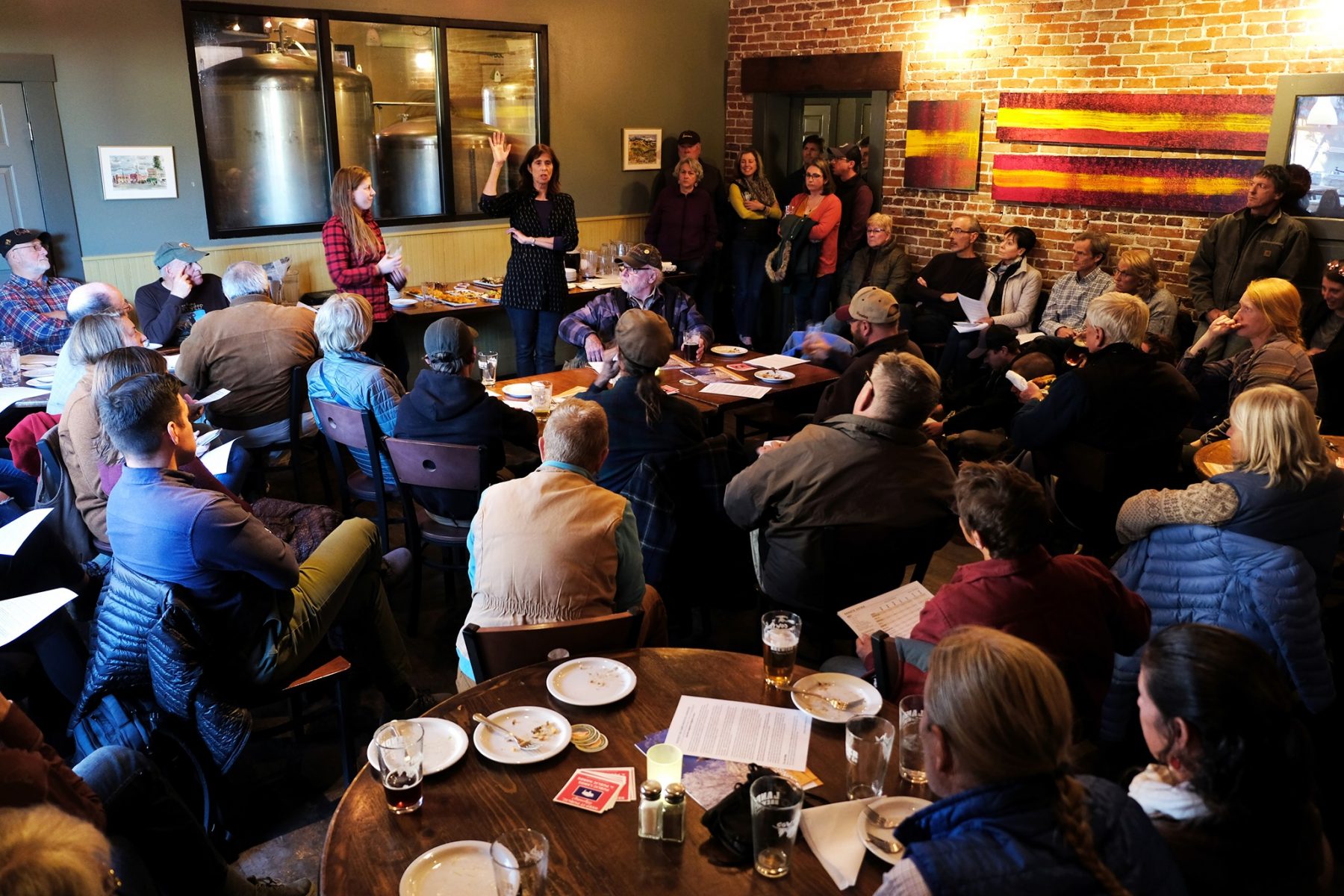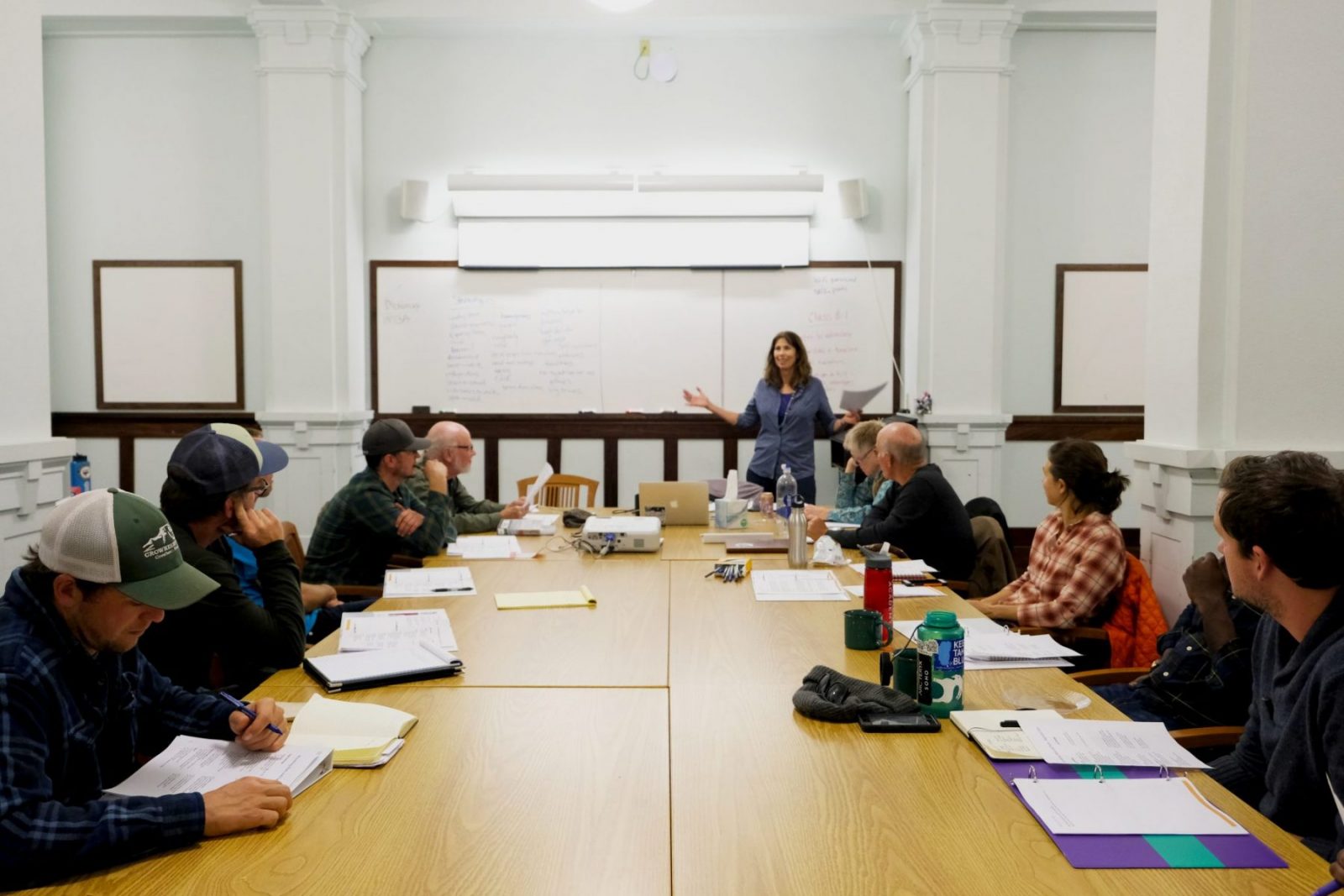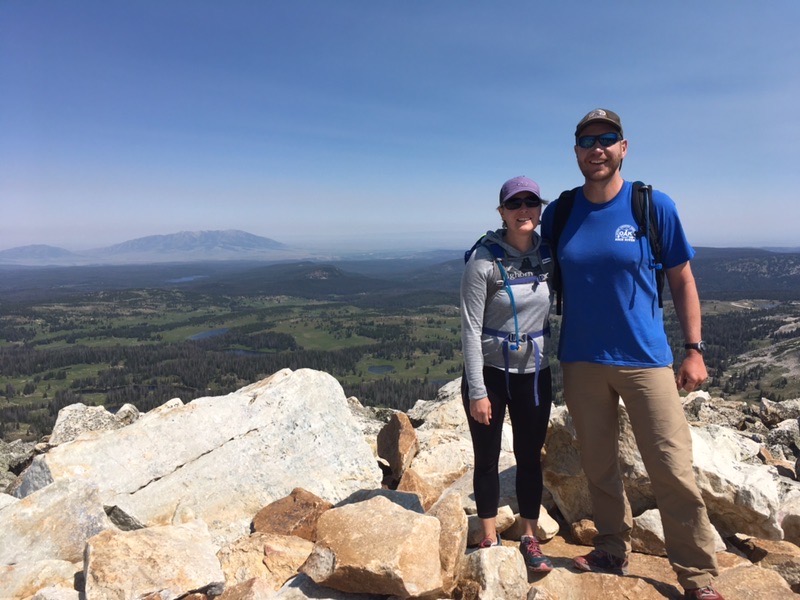One day in mid-March, all of us on the Wyoming Outdoor Council staff found ourselves sitting at home. The safest thing to do was to stop all work-related travel and work remotely rather from the Lander office. Our office remained open a few hours a day for our administrative staff (thank you Maureen and Misti) to process mail, pay bills, and acknowledge new and renewing memberships, but things had changed.
Like you, we stayed awake at night worrying about the health of our vulnerable family members and friends. We tried to make sense of a rapidly evolving global pandemic while facing new, everyday challenges, like kids who could no longer go to school or how to safely get groceries. Overall, we did our best to stay positive.
Fortunately, most of our work continued from home offices, but other aspects — holding public events, attending legislative and state agency meetings, getting together with members and partners — evaporated overnight, and we were left wondering how to fill that gap. It quickly became apparent this situation wasn’t going to resolve itself anytime soon, and after just a few days of self-isolation our staff was eager to connect with one another and our members.
The first step was the easiest.
Even in normal times, the Outdoor Council offers a variety of trainings and resources for citizens who want to be better informed about conservation issues in Wyoming and empowered to participate in public processes that affect our public lands, wildlife, and environmental quality. We’d already planned to bring our citizen outreach and engagement work under a single banner, and took the opportunity this spring to launch FIELD: Fostering Impact through Environmental Leadership Development.
We dove in headfirst with a brand-new offering: a continuing series of video lessons for kids and teenagers that we dubbed Live from the FIELD. In each installment, students had the opportunity to learn from a Wyoming expert, then participate in a live Q&A session over Zoom. We heard about mule deer, big game migration, and wildlife ecology from University of Wyoming research scientists Samantha Dwinell and Rhiannon Jakopak, wildlife disease from Hank Edwards of Wyoming’s Wildlife Health Laboratory, the sagebrush ecosystem from Gina Clingerman of the Bureau of Land Management, and healthy streams from fly fishing guide and longtime member George Hunker. When we noticed many adults were tuning in as well, we took a bigger creative risk and put together a live, online variety show about the National Environmental Policy Act.
Was there an occasional technical difficulty? Of course. Was using a fireside monologue, game show-style trivia, and puppets to explain federal environmental law a bit corny? Maybe. But the response these events elicited showed us that people in Wyoming are eager to learn and excited to engage in new ways. If you missed the sessions, you can find recordings on our YouTube channel.
The next step was slightly more daunting.
What was to become of our flagship conservation leadership program — the newly renamed FIELD Training — if we couldn’t assemble the eight weeks of class meetings in person? As was so often the case during the first months of the pandemic, taking the program online was the solution. This proved to be as much of a benefit as it was a hurdle. Nothing compares to a face-to-face conversation, but delving into remote learning allowed many people from around the state to participate. How else could a dozen passionate citizens from communities as far-flung as Lusk, St. Stephens, Alpine, and Wapiti all get together for twice-weekly workshops?
It was evident from the start that the value of engaging with people through these online platforms went far beyond a temporary workaround. It’s not a perfect solution, but in this big, sparsely populated, mostly rural state, it’s a step toward bringing us all a little closer together. It’s our intention that these online offerings will continue and expand.
The past months have shown us new opportunities to reach people in Wyoming who care about conservation, and strengthen the type of community building we’ve always done. We’re proud to have a resourceful and energetic staff that can adapt and react quickly. And none of this would be possible without the unwavering support of members like you who took a chance with us and tuned in, demonstrating your commitment to protect Wyoming’s environment and quality of life. Thank you. When the next unexpected challenge arises, as it inevitably will, we’ll rise up to meet it together.





